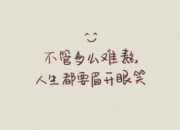大学体验英语3课文原文(11)
时间:2021-08-31Unit4:Passage A:Not Now, Dr. Miracle
Severino Antinori is a rich Italian doctor with a string of private fertility clinics to his name. He likes watching football and claims the Catholic faith. Yet the Vatican is no fan of his science. In his clinics, Antinori already offers every IVF treatment under the sun, but still there are couples he cannot help. So now the man Italians call Dr Miracle is offering to clone his patients to create the babies they so desperately want.
And of course it's created quite a stir, with other scientists rounding on Antinori as religious leaders line up to attack his cloning plan as an insult to human dignity. Yet it's an ambition Antinori has expressed many times before. What's new is that finally it seems to be building a head of steam. Like-minded scientists from the US have joined Antinori in his cloning adventure. At a conference in Rome last week they claimed hundreds of couples have already volunteered for the experiments. Antinori shot to fame seven years ago helping grandmothers give birth using donor eggs. Later he pioneered the use of mice to nurture the sperm of men with poor fertility. He is clearly no ordinary scientist but a showman who thrives on controversy and pushing reproductive biology to the limits. And that of course is one reason why he's seen as being so dangerous. However, his idea of using cloning to combat infertility is not as mad as it sounds. Many people have a hard job seeing the point of reproductive cloning. But for some couples, cloning represents the only hope of having a child carrying their genes, and scientists like Antinori are probably right to say that much of our opposition to cloning as a fertility treatment is irrational. In future we may want to change our minds and allow it in special circumstances. But only when the science is ready. And that's the real problem. Five years on from Dolly, the science of cloning is still stuck in the dark ages. The failure rate is a shocking 97 per cent and deformed babies all too common. Even when cloning works, nobody understands why. So forget the complex moral arguments. To begin cloning people now, before even the most basic questions have been answered, is simply a waste of time and energy. This is not to say that Antinori will fail, only that if he succeeds it is likely to be at an unacceptably high price. Hundreds of eggs and embryos will be wasted and lots of women will go through difficult pregnancies resulting in miscarriages or abortions. A few years from now techniques will have improved and the wasteful loss won't be as excessive. But right now there seems to be little anyone can do to keep the cloners at bay. And it's not just Antinori and his team who are eager to go. A religious group called the Raelians believes cloning is the key to achieving immortality, and it, too, claims to have the necessary egg donors and volunteers willing to be implanted with cloned embryos. So what about tougher laws? Implanting cloned human embryos is already illegal in many countries but it will never be prohibited everywhere. In any case, the prohibition of cloning is more likely to drive it underground than stamp it out. Secrecy is already a problem. Antinori and his team are refusing to name the country they'll be using as their base. Like it or not, the research is going ahead. Sooner or later we are going to have to decide whether regulation is safer than prohibition. Antinori would go for regulation, of course. He believes it is only a matter of time before we lose our hang-ups about reproductive cloning and accept it as just another IVF technique. Once the first baby is born and it cries, he said last week, the world will embrace it. But the world will never embrace the first cloned baby if it is unhealthy or deformed or the sole survivor of hundreds of pregnancies. In jumping the gun, Dr Miracle and his colleagues are taking one hell of a risk. If their instincts are wrong, the backlash against cloning - and indeed science as a whole - could be catastrophic. the research on cloning humans should not be conducted so recklessly Vatican is against Antinori's cloning plan Criticizing cloning science is not advanced enough he tries to challenge the biological limits to combat infertility
Unit4:Passage B:I Have His Genes But Not His Genius
It's Christmas Eve 2040, and I'm the only bartender still working that afternoon, and the house is practically empty. I see this guy down at the end of the bar, sitting by himself. I bring him a fresh drink, and wish him greetings of the season. He looks at me, sort of funny, and says: "Do you know who I am?" I admit I don't. "Here, maybe this will help," he says, and he pulls a little picture out of his wallet. An old portrait, really old, like centuries old. It's a young man in profile: sharp nose, weak chin, definite resemblance to my friend here. At the bottom, there's a caption: "W. A. Mozart." Now it's my turn to look at him funny. Then it hits me like a brick. "You're that clone guy," I say. "The guy in the papers back in the '20s." "In the flesh. Wolfgang Amadeus Mozart. I have his brain, his heart, his DNA. He's my father and my mother and my brother. He's my identical twin, except I was born 247 years later." So he starts talking. It takes him a long time to explain, and I didn't get it all, but I got a lot. In 2001, Congress passed a ban on cloning humans, but of course mad scientists went ahead with secret cloning. And then, there was this software billionaire who was nuts about Mozart, and was especially nuts about Mozart's Requiem. He set up a secret institute in Switzerland and hired some top biologists and told them they'd get $1 million each for every baby they cloned from Mozart's DNA. In 2003, the institute managed to bring four babies to term. Two died shortly after birth. Two survived. But then this software billionaire died, and his company collapsed, and so did his cloning institute. One baby Mozart was put up for adoption anonymously. No one knows what happened to that one. The other baby was adopted by one of the scientists, who was a big Mozart fan herself. "And that's me," he says. His mother, of course, didn't tell him or anyone else who he was, but she told the boy how special he was, how he was a genius, what a great composer he could be, trying to push her little Mozart toward music. But the 2010s weren't the 1760s. The boy may have had talent, but he also had his own priorities, and they didn't include violin sonatas. He liked rock music and he liked it loud, and then as he got older he liked beer and girls. The harder his mother pushed him to be a great composer, the less he wanted to be one. After a while his mother gave up. By the time he was 20, he had a decent job working in a frame shop. And that's when the roof fell in. Some reporter got wind of the institute and the cloning experiment and tracked him down. But no one could prove he was a clone of Mozart without digging up the original, so the media treated him as a joke. It just crushed him. He tried running away. He joined a Buddhist monastery in Japan. One day, while he was there, he heard the Requiem. Not for the first time, but this time it was different. "My God, it was beautiful!" he says. "I felt a realization explode inside my head. I just felt it somehow: It rang inside of me. I'd finish it, or die trying." He knew that if he could finish the Requiem, he'd be famous for real, a genius instead of a fool. He immersed himself in Mozart's music. Nights, weekends, all the time, he drove himself, working on the Requiem. "And? What happened?" "I turned 37 four months ago. I've been working on the Requiem for 15 years. Mozart died when he was 35. I should have finished the Requiem two years ago." "And you haven't." He looks at me for a while and shakes his head, "You don't understand. I have his genes but not his genius." And with that he drops a tip on the bar and is gone. I never saw him again. If the Requiem was ever finished, I never heard about it.











